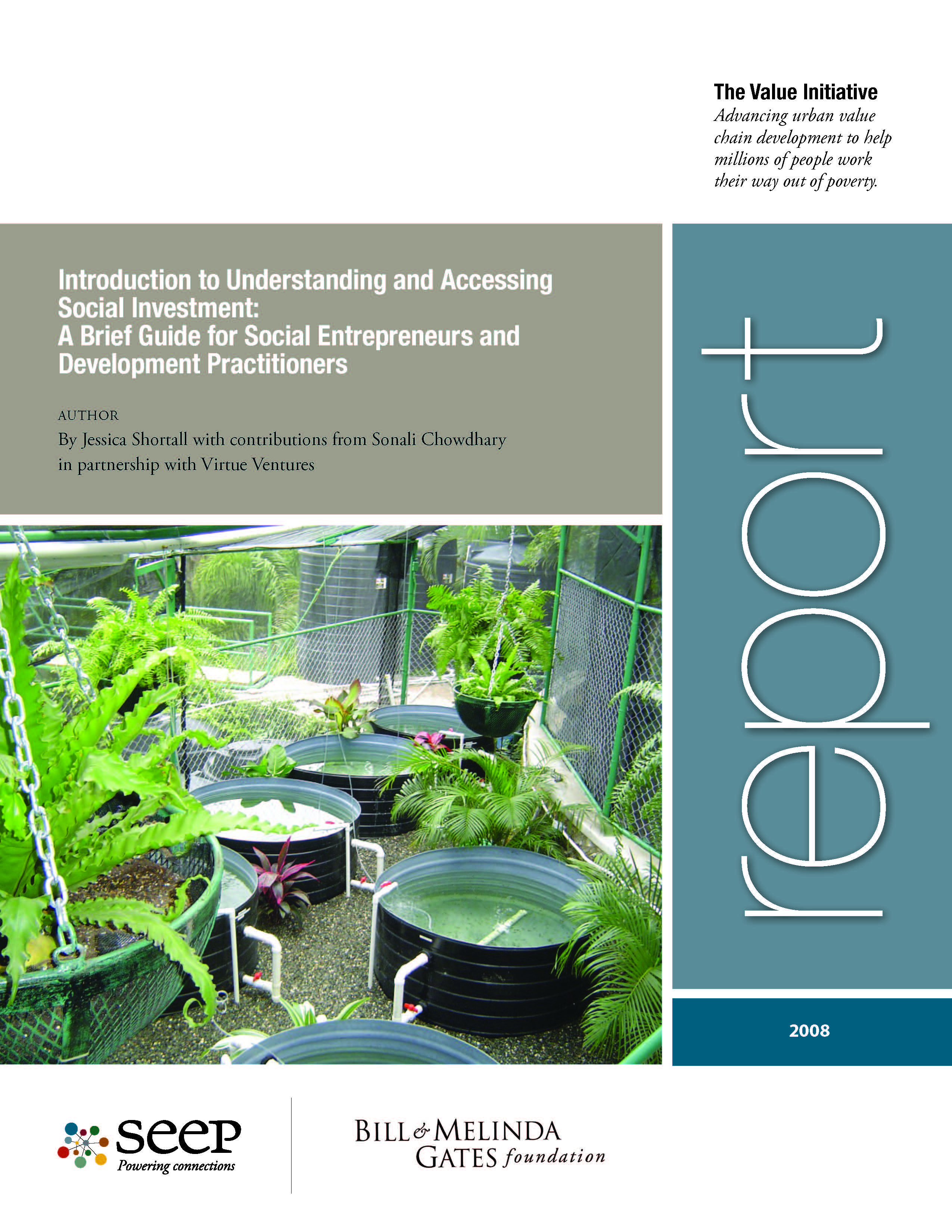2008 | Jessica Shortall

NGOs, non-profits, and other social purpose organizations have traditionally relied on grants, donations, and contracts to fund their work in poverty alleviation, enterprise development, market facilitation, and livelihood development. These grants or contracts typically carry no expectation of financial return. Money is spent according to an agreed-upon budget and project plan, with the expectation that organizations will produce outputs (training, association development, market linkages) that lead to development outcomes (improved productivity, reduced costs, increased sales) and ultimately positive social impact (increased income, increased education, empowerment).
Over the last 10–15 years, social enterprise has emerged as an effective practice for achieving sustainable development goals. Social enterprises may generate financial returns, help an organization become sustainable, or generate social impact that is assessed and reported as a “social return on investment.” For example, an organization may count, per US$ 1 invested, the number of people who access health services, use irrigation equipment, or double their income. The application of business principles to social goals creates new operational strategies and disciplines. It also creates demand for, and opens opportunities to, new types of funding.
This paper explores the growing pool of money termed “social investment” that is tailored to social enterprises. Social investment can help organizations build capacity, test innovations, and achieve sustainability. It can be a more flexible source of financing than grants and contracts, but it can also come with some challenging performance objectives. The goal of this paper is to introduce enterprise development practitioners and social entrepreneurs to social investment as a financing tool and help them begin to navigate their way toward raising social investment funds.
Specifically, we hope to:
• Provide a working definition for “social investment” and explain how this differs from traditional funding mechanisms
• Educate development practitioners and social entrepreneurs on social investors and their criteria, and how to identify appropriate types of social investment as practitioners evolve their business and funding strategies
• Provide concrete advice on approaching social investors, a process that is significantly different from traditional proposal writing

1621 North Kent Street, Ste 900,
Arlington, VA, 22209
P 202.534.1400
F 703.276.1433
Website Photos: © mari matsuri
